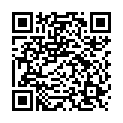|
|
|
| Module code: MAB_19_IP_5.06.VWZ |
|
|
1V+1P (2 hours per week) |
|
3 |
| Semester: 5 |
| Mandatory course: yes |
Language of instruction:
German |
Assessment:
Written exam 90 min.
[updated 05.10.2020]
|
MAB_19_IP_5.06.VWZ (P241-0201, P241-0203) Mechanical and Process Engineering, Bachelor, ASPO 01.10.2019
, semester 5, mandatory course, Specialization Industrial Production
|
30 class hours (= 22.5 clock hours) over a 15-week period.
The total student study time is 90 hours (equivalent to 3 ECTS credits).
There are therefore 67.5 hours available for class preparation and follow-up work and exam preparation.
|
Recommended prerequisites (modules):
MAB_19_A_2.02.TFL Manufacturing Process Technology (with Lab Course)
[updated 06.04.2020]
|
Recommended as prerequisite for:
|
Module coordinator:
Prof. Dr. Jürgen Griebsch |
Lecturer:
M.Eng. Pascal Paulus
[updated 06.04.2020]
|
Learning outcomes:
After successfully completing this course, students will be familiar with the structure and elements of machine tools.
They will be able to assess the importance of the individual elements for manufacturing accuracy and select suitable machine tools for a given manufacturing task.
[updated 05.10.2020]
|
Module content:
- Machine tool requirements and definition
- Frames: geometries and materials
- Guides
- Drives
- Machine tool design
[updated 05.10.2020]
|
Teaching methods/Media:
Instruction with practically-oriented exercise segments, laboratory in small groups
[updated 05.10.2020]
|
Recommended or required reading:
HIRSCH, Andreas: Werkzeugmaschinen Grundlagen, Auslegung, Ausführungsbeispiele. Wiesbaden, Vieweg+Teubner Verlag, 2012
BAHMANN, Prof. Dr.-Ing. Werner: Werkzeugmaschinen kompakt _ Baugruppen, Einsatz und Trends, Wiesbaden, Springer Vieweg, 2013
BRECHER, Christian; Weck Manfred: Werkzeugmaschinen Fertigungssysteme Konstruktion, Berechnung und messtechnische Beurteilung Band 2, Berlin Heidelberg, Springer Vieweg, 2017
KLEIN, Bernd: FEM - Grundlagen und Anwendungen der Finite-Element-Methode im Maschinen- und Fahrzeugbau; Wiesbaden, Springer Vieweg, 2012
NEUGEBAUER, Prof. Reimund: Werkzeugmaschinen Aufbau, Funktion und Anwendung von Spanenden und abtragenden Werkzeugmaschinen, Berlin Heidelberg, Springer Vieweg, 2012
[updated 05.10.2020]
|

